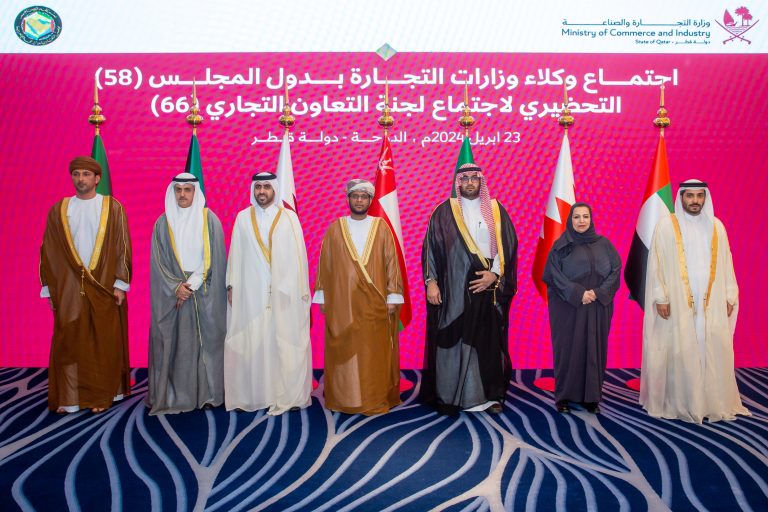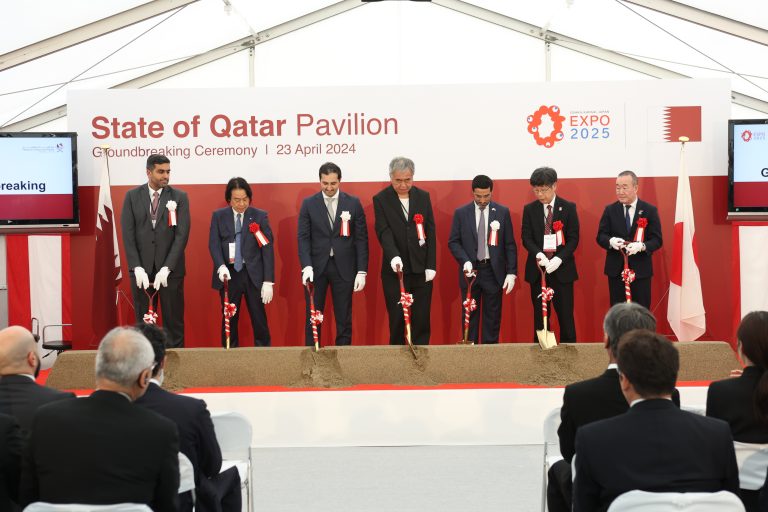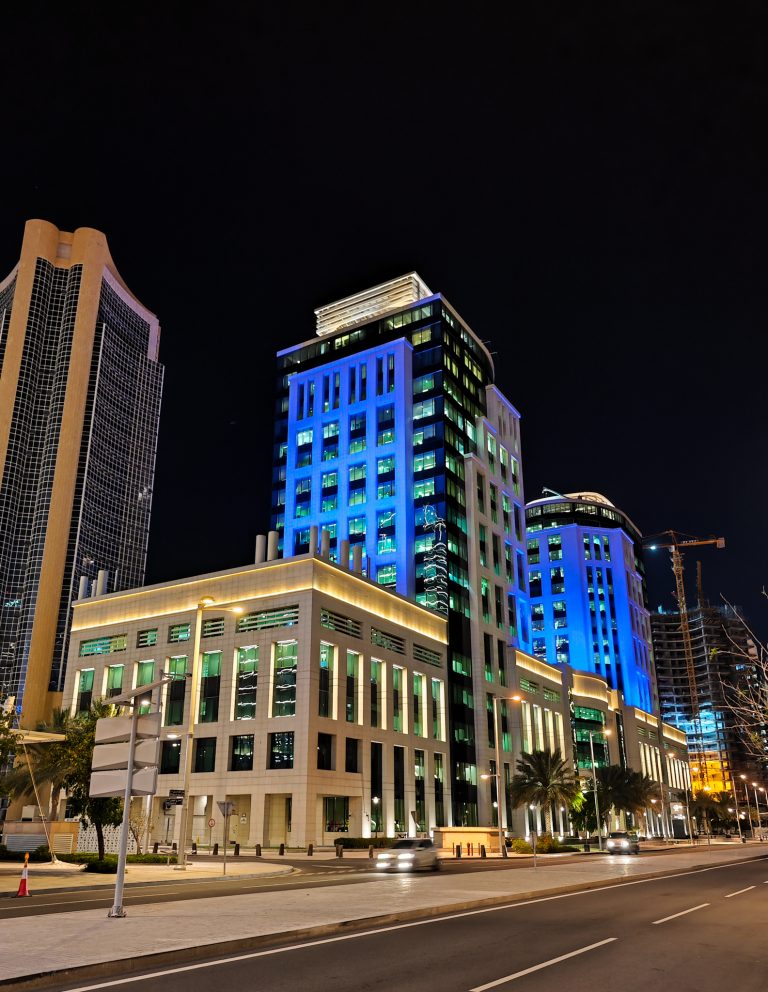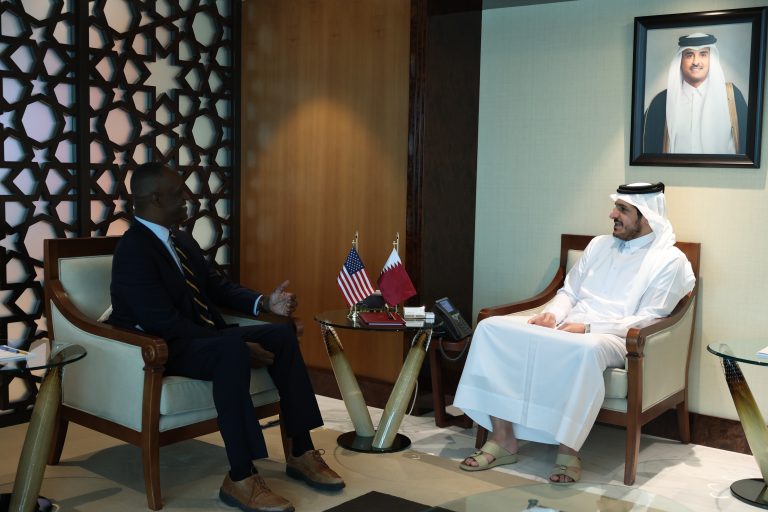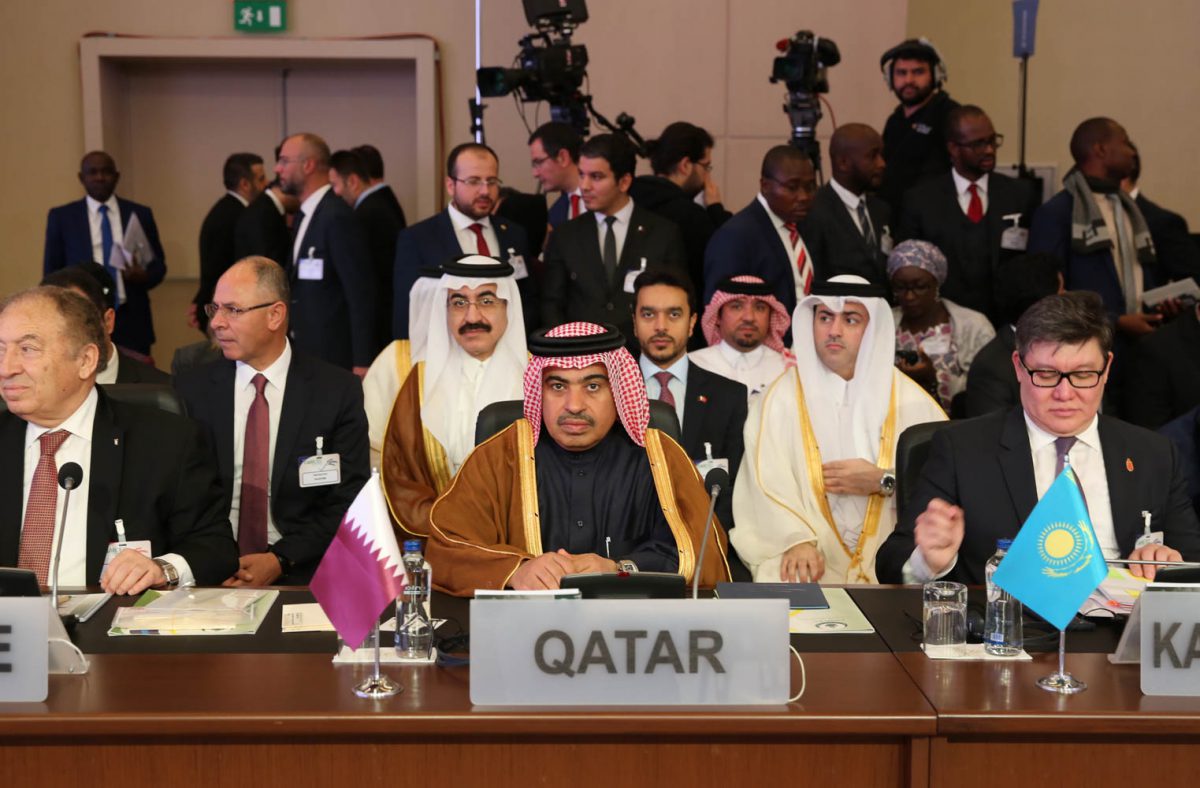
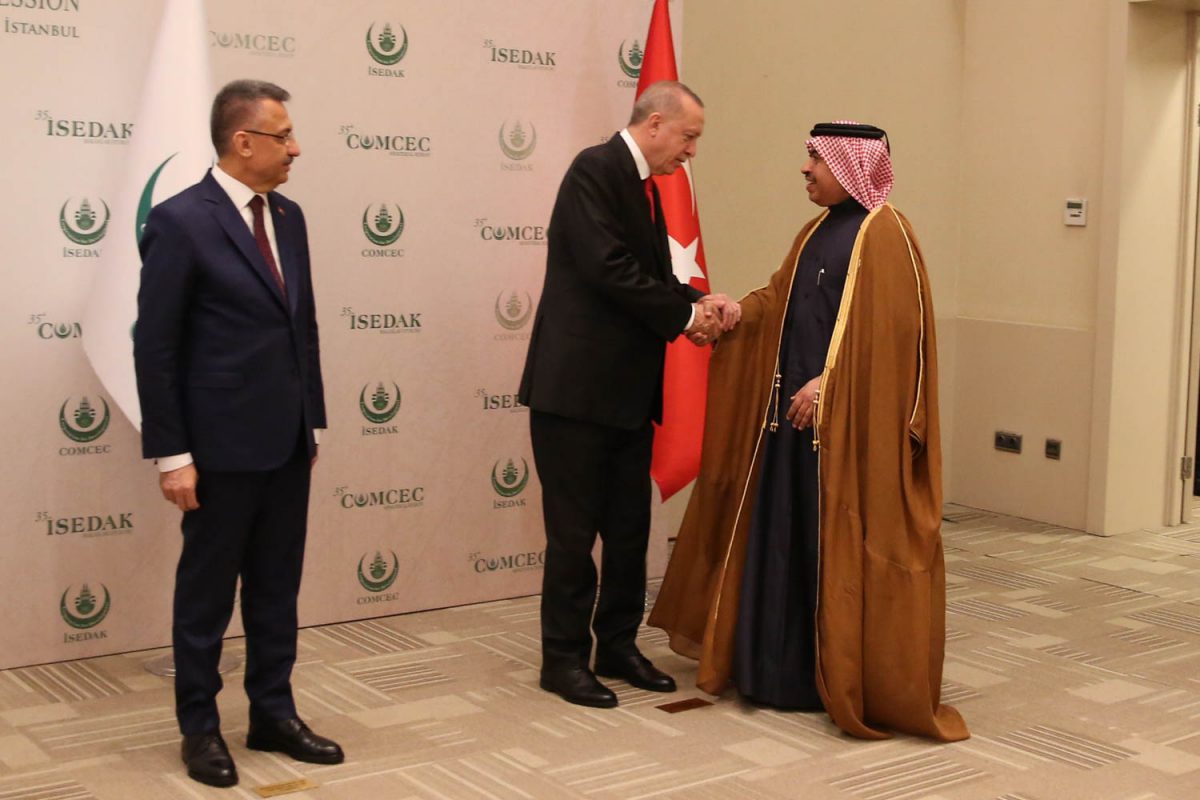
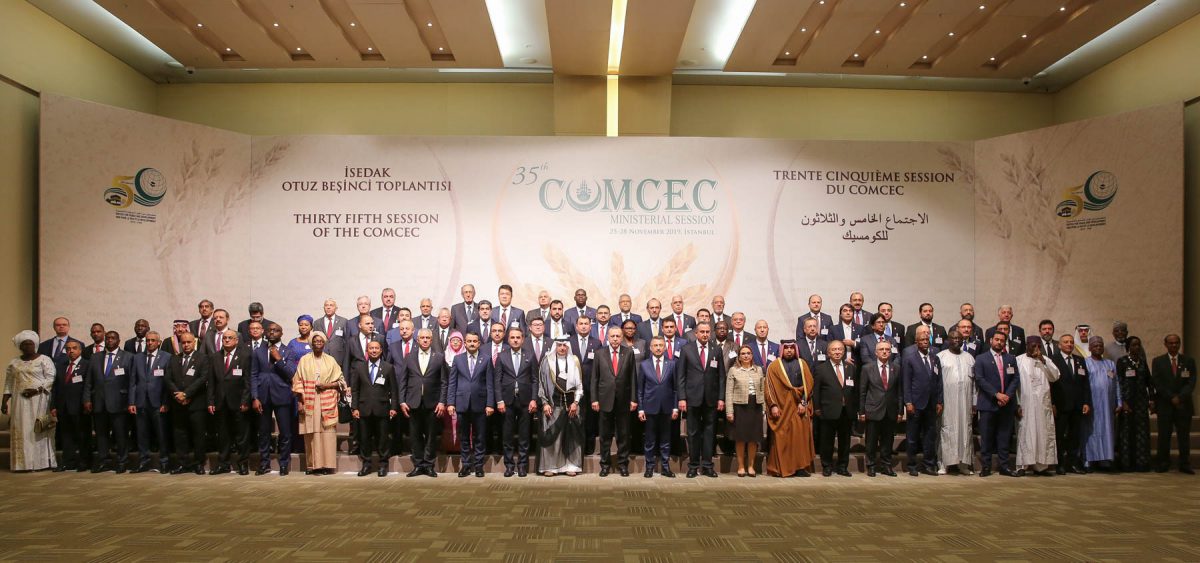
His Excellency Mr. Ali bin Ahmed Al Kuwari, Minister of Commerce and Industry, chaired Qatar’s delegation to the 35th ministerial meeting of the Standing Committee for Economic and Commercial Cooperation of the Organization of Islamic Cooperation (COMCEC). Qatar is representing the Arab group at the four-day event, which is taking place in Istanbul, Turkey, on November 25-28, 2019.
Speaking at COMCEC’s opening meeting, H.E. Mr. Kuwari hailed Turkey for its efforts within the framework of COMCEC to move forward with the implementation of key projects and initiatives that promote economic integration and cooperation among Islamic countries.
H.E. noted that this meeting is taking place in light of delicate geostrategic and economic changes, a slowdown in multilateral trade and a lack of tangible progress at the WTO’s 11th Ministerial Conference. H.E. also warned of the potential negative repercussions of global political uncertainties, which are leading to rising economic nationalism and protectionist measures at the global trade level.
H.E. pointed to the repercussions of Brexit, which would impact many countries, particularly GCC member states who enjoy close and distinguished relations with the UK.
H.E. called for a quantum leap in joint Islamic action to establish innovative initiatives that contribute to overcoming difficulties and obstacles facing OIC member states.
H.E. called for further efforts within the framework of COMCEC to implement future plans, in particular the economic aspects of the OIC Ten-Year Programme of Action, which calls for a 25% increase in intra-regional trade by 2025, as well as gradual measures to establish a free trade area that lifts all customs and non-tariff barriers and restrictions.
In this context, H.E. hailed the efforts of Arab countries in terms of moving forward with the adoption of COMCEC’s recommendations, their effective contribution to the implementation of the ten-year programme, the OIC strategy, and the Arab Customs Union project, which would serve the objectives of Islamic countries and promote joint Islamic action at the economic and commercial levels.
H.E. noted that this meeting presents an important opportunity to propose mechanisms to improve joint Islamic action in the field of food security, which tops the development agenda of numerous countries particularly Islamic states.
Referring to the definition of food security by the Food and Agriculture Organization of the United Nations (FAO) which notes that “food security exists when all people, at all times, have physical, social and economic access to sufficient, safe and nutritious food that meets their dietary needs and food preferences for an active and healthy life,” H.E. said a food crisis exists in Muslim countries as evidenced by the growing dependence on external sources to meet the nutritional needs of the populations of Islamic countries, the decline in per capita agricultural output and the contribution of the agricultural sector to GDP.
H.E. added that the majority of Islamic countries, especially African countries, are facing a number of challenges relating to food security and agricultural development as these countries tend to provide support for service sectors instead of stimulating agricultural production, which has resulted in a the decline in the average contribution of the agriculture sector to the GDP of Islamic countries from 23% in 1990 to 17% in 2016.
H.E. praised the 2025 Action plan adopted by the 13th Islamic Summit held in Istanbul, noting that the plan represents an important roadmap to achieve the goals and objectives in this field.
H.E. added that the program seeks to promote sustainable food security across member states by increasing agricultural production capacities and developing food production systems that promote agricultural diversification, optimal land use, efficient water and land usage, and investments in food security-related sectors.
In this regard, H.E. called on the Islamic Organisation for Food Security (IOFS) to prioritize intra-agricultural investments, encourage and channel investments into the agriculture sector in Islamic countries, and to develop value chains among neighboring countries to achieve regional integration in this field.
H.E. also proposed the establishment of an agricultural commodity market for Islamic countries aimed at facilitating intra-regional trade.
H.E. explained that achieving sustainable development in OIC member states and promoting growth and prosperity undoubtedly requires peace as well as political and social stability.
H.E. added that this meeting aims to strengthen Islamic solidarity in line with the principles and objectives of COMCEC, and to develop mechanisms of cooperation and coordination between OIC countries on the economic and trade levels, in order to achieve the aspirations of people and to promote development, progress and prosperity.
H.E. concluded his speech by thanking His Excellency, Mr. Recep Tayyip Erdogan, President of the Republic of Turkey, Chairman of the Islamic Summit and the COMCEC Committee, as well as the Arab Group for entrusting Qatar to speak on behalf of the Group.
Established in 1981, COMCEC is the main forum for multilateral economic and trade cooperation in the Islamic world and acts as a central platform through which development challenges facing the Islamic world are addressed.




